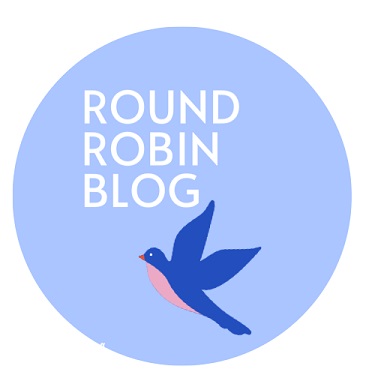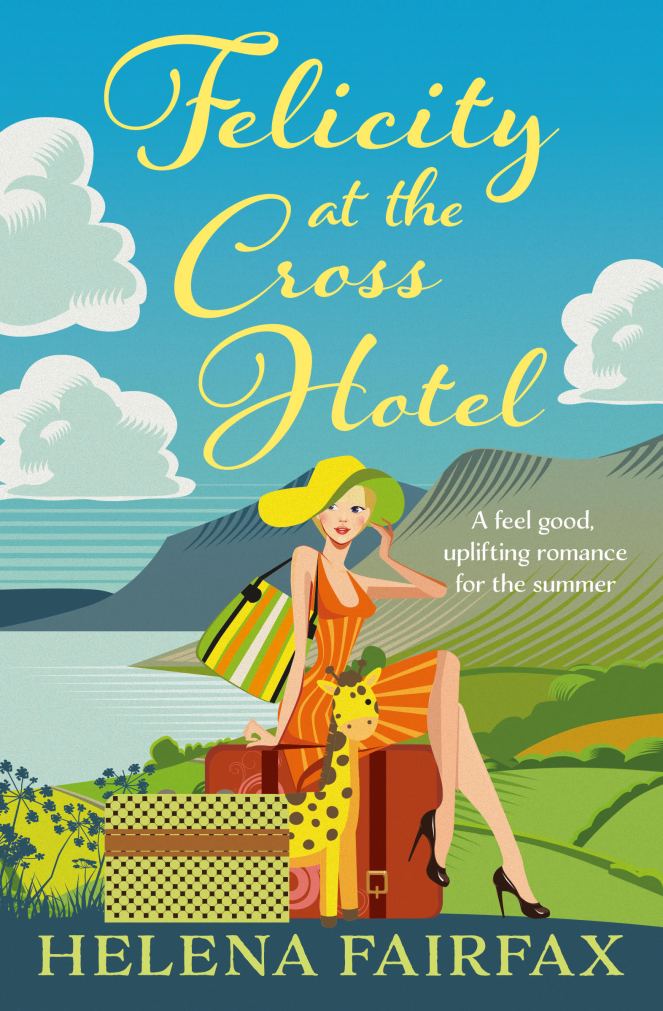It’s time for another of our authors’ Round Robin posts, and this month we have another thought-provoking topic set by author Rhobin Courtright…

‘Most novels have an easily understood point to make to the reader. Do your stories ever have more subtle themes?’
When I first start a novel, I’m not consciously aware of what the theme is going to be. It’s not until I finally write The End, that everything is clear to me, and the theme stands out.
So I don’t sit down and say to myself, ‘OK, I’m going to write a book about happiness,’ for example, but that’s what my book Felicity at the Cross Hotel turned out to be about. And the strange thing is, it’s only when I look back on the whole process that I realise that, actually, I did have an idea right from the start.
This ‘woolliness’ probably doesn’t sound helpful if you’re looking for clear cut instructions on how exactly to develop theme – but I’ll try to show how, once my theme is starting to become clear to me, I try to go back into the story and develop it further.
What is theme?

First of all, theme is different to plot or story. A story is about a character or group of characters and the events that happen around them. The theme is the message or overall picture that story conveys.
(For example The Three Musketeers is about friendship, and Pride and Prejudice is about, well, pride and prejudice. But there doesn’t have to be just one overriding theme. The story of the musketeers is also about revenge, and P&P is also about marriage and money.)
Since I write romance novels, my first building block is to decide on the romantic conflict – that is, the thing that’s going to keep the hero and heroine apart for the course of the entire novel. That conflict needs to be something within their characters (an internal conflict) rather than something outside their control (an external conflict, such as the hero being ill in hospital, or kidnapped, or something similar that puts a spanner in the works).
Romantic conflict and theme

Once I’ve decided on the romantic conflict, that’s when the theme starts to come to light. In Felicity at the Cross Hotel the hero, Patrick Cross, has inherited an ailing hotel. Felicity works for her father, who is notorious for swooping up hotels and adding them to his corporate chain. But Felicity is one of those people who spreads happiness wherever she goes – you may have seen what I did with her name :) – and Patrick Cross, who has lots to be cross about, poor guy, begins to fall for her.
I’d already decided on the symbolism of the names before I started. It was as I was writing that I realised how important the theme of happiness was to the novel. I began to rewrite a few things to make the theme stronger.
I’ve written before about how much I love symbolism. Besides the symbolism of the characters’ names, I also rewrote the opening a little to emphasise the pathetic fallacy – that is, the symbolism of the weather.
The first line of the book is: ‘At last, it had stopped raining.’
With Felicity’s arrival at the hotel, the rain literally stops. She meets Patrick, gazing broodingly over the wet landscape, and as she speaks the sun comes out.
I brought in symbolism in other areas, too. For example, Felicity transforms the gloomy hotel literally as well as metaphorically. She buys new curtains, and Patrick, who doesn’t normally register these things, ‘noticed the light, slanting in a haze across the tiled floor. He turned to face the window. Where once the ageing velvet had hung, there was now a beautiful blue damask silk…’
Once the theme has begun to reveal itself to me, I love to play with symbolism to highlight it. In my novel Penny’s Antique Shop of Memories and Treasures, for example, the hero, Kurt, is taciturn and his heart is shuttered. (Note the symbolism of the name again :) ) When he takes a walk with the heroine in Richmond Park, he begins to open up to her in this vast expanse of greenery. It’s winter, but the crocuses and snowdrops are pushing their way through, symbolising how his heart is beginning to thaw.
I try to be subtle about developing a theme, and not whack the message home with a sledgehammer, but also not so subtle that I fail to get the message across at all.
This is just my personal way of developing themes in a novel. You might also be interested in this excellent article on theme on the Reedsy blog.
So in answer to the question ‘Does theme matter?’ Yes, for me theme enriches a story and makes it ‘about’ much more than boy meets girl.
Every author finds their own way to develop their themes. If you’d like to find out what the other authors in our Round Robin say on this subject, please click on their links below!
As a reader, do you care what the theme is in a novel, or are you more interested in the story and characters? Are there any themes you particularly love?
If you have any comments at all, I’d love to hear from you!
Connie Vines http://mizging.blogspot.com/
Judith Copek http://lynx-sis.blogspot.com/
Diane Bator http://dbator.blogspot.ca/
Fiona McGier http://www.fionamcgier.com/
Dr. Bob Rich https://wp.me/p3Xihq-22c
Anne Stenhouse http://annestenhousenovelist.wordpress.com/
Victoria Chatham http://www.victoriachatham.com
Skye Taylor http://www.skye-writer.com/blogging_by_the_sea
Rhobin L Courtright http://www.rhobincourtright.com




Leave a Reply